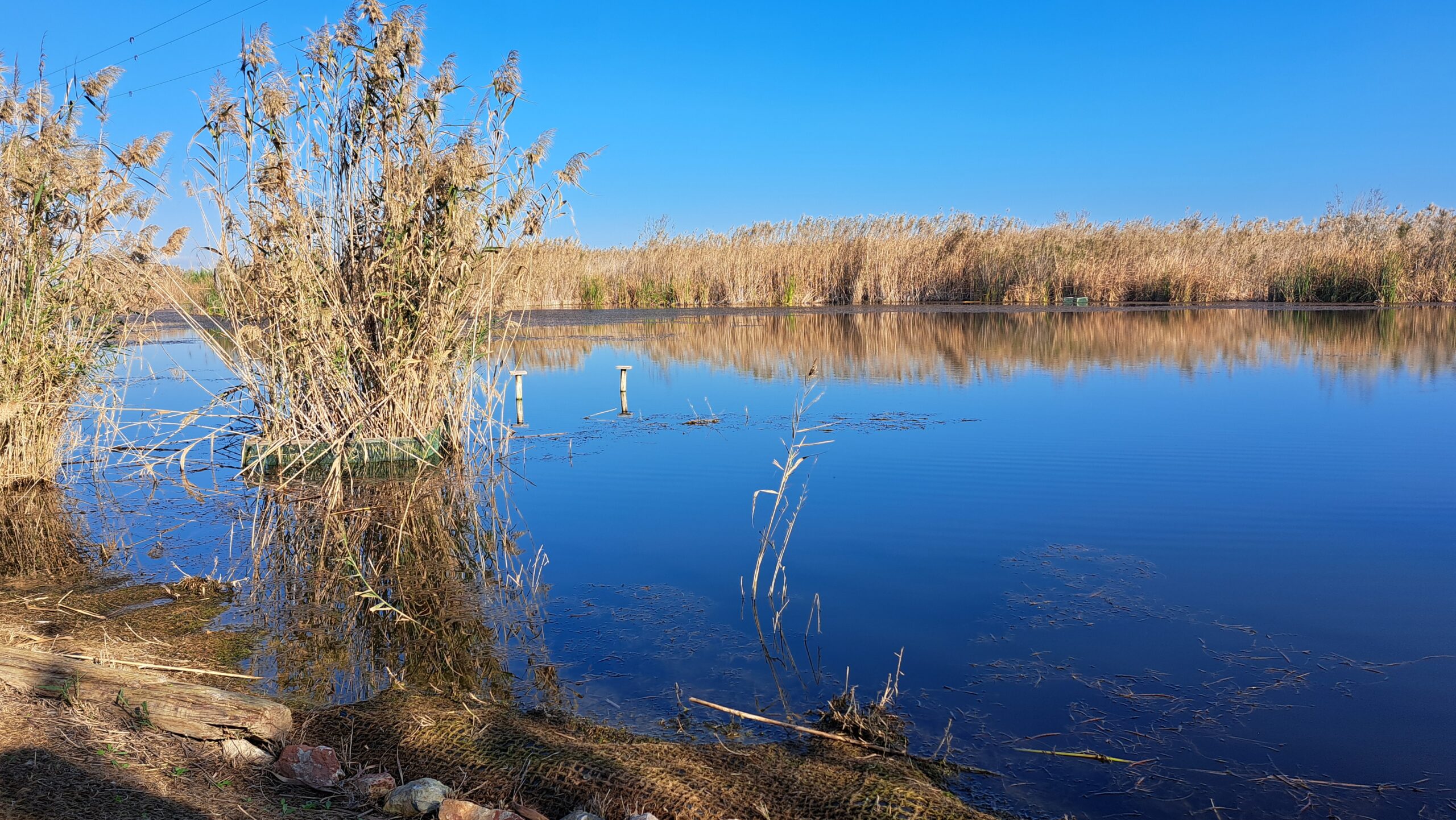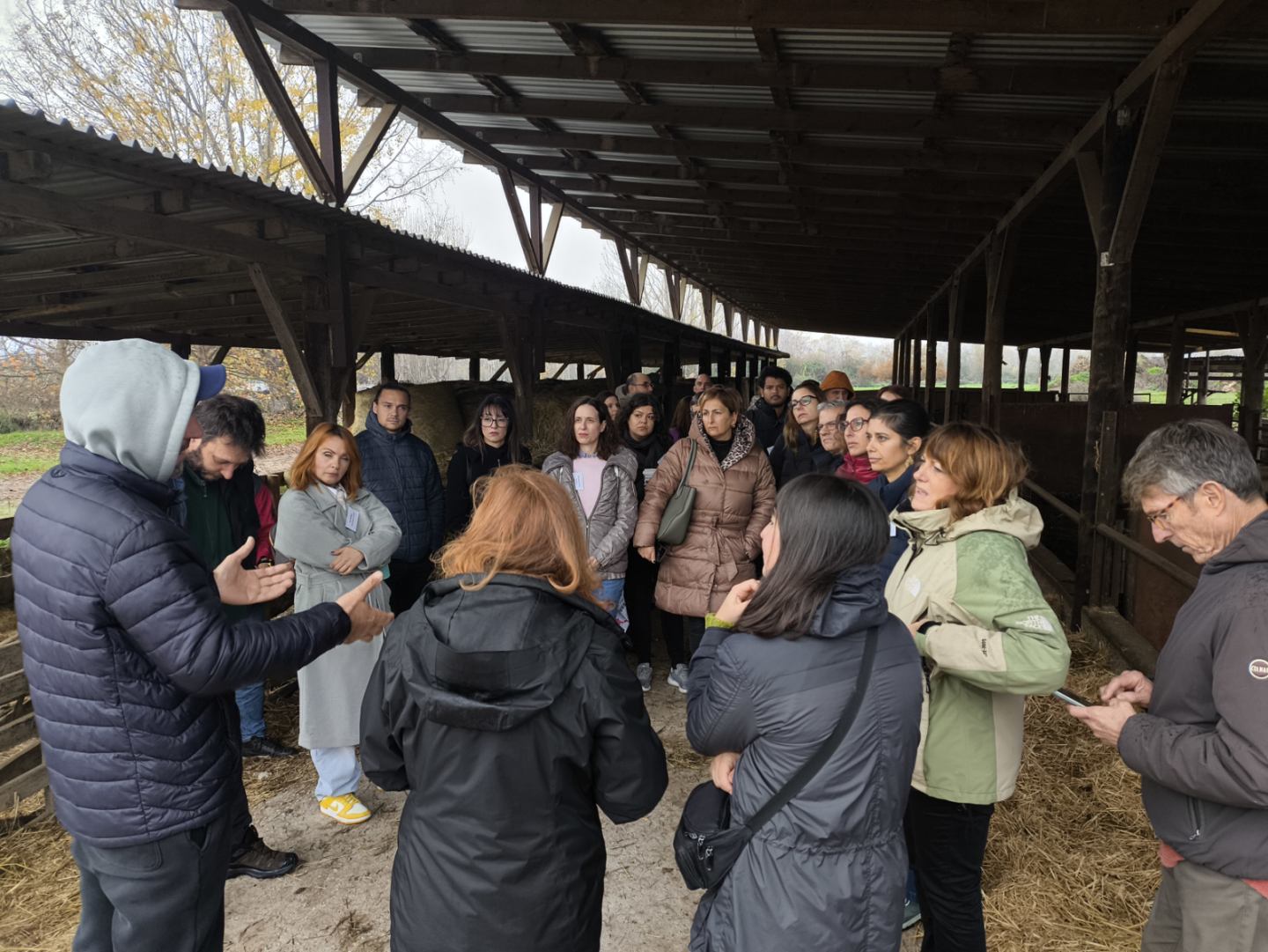The recent Wetland4Change Valencia meeting, held less than a month after the devastating flood caused by the DANA (Isolated Depression at High Altitude), provided a vital opportunity to discuss the role of wetlands in mitigating climate change effects. The DANA, which tragically claimed the lives of at least 223 people, brought unprecedented rainfall, severely impacting the region’s environmental and infrastructural systems. During the meeting, Carles Sanchis, President of the Management Council of the Albufera Natural Park, and Antonio Camacho, Director of the Limnology group of the Cavanilles Institute of Biodiversity – University of Valencia – Wetland4Change Partner – shed light on the critical role of wetlands and the challenges they face in the context of climate change.
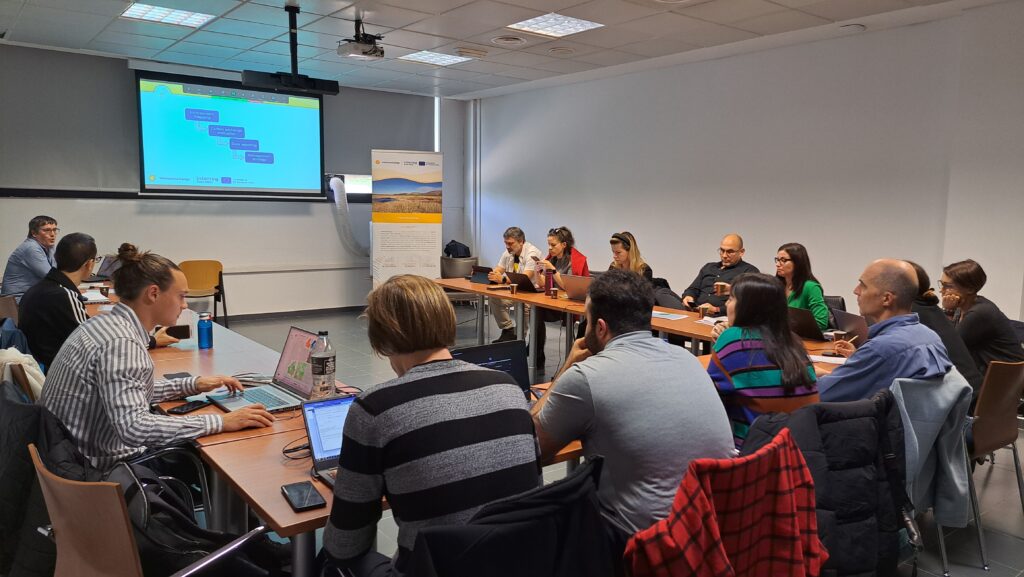
The Team of Wetland4Change in Valencia – University of Valencia
Carles Sanchis, in a speech and an interview, detailed the dire condition of the wetland system during the climatic event. He described the extraordinary rainfall, stating, “In the area most affected by the storm, 641 mm of rain fell, equivalent to the annual rainfall in Paris, with 187 mm recorded in just one hour—a record for the entire Iberian Peninsula since precipitation data has been recorded.” However, the wetlands were far from prepared to handle such an event. According to Sanchis, structural inefficiencies in the sewer system, dating back to the 1960s and ’70s, caused significant pollutant inflows, further compromising the ecosystem. He emphasized that as the wetlands struggled to recover from these systemic issues, new threats linked to climate change, such as intensified droughts, stronger storms, rising sea levels, and increasing salinity, emerged. These challenges threaten not only the ecosystem but also local economic activities like rice farming.
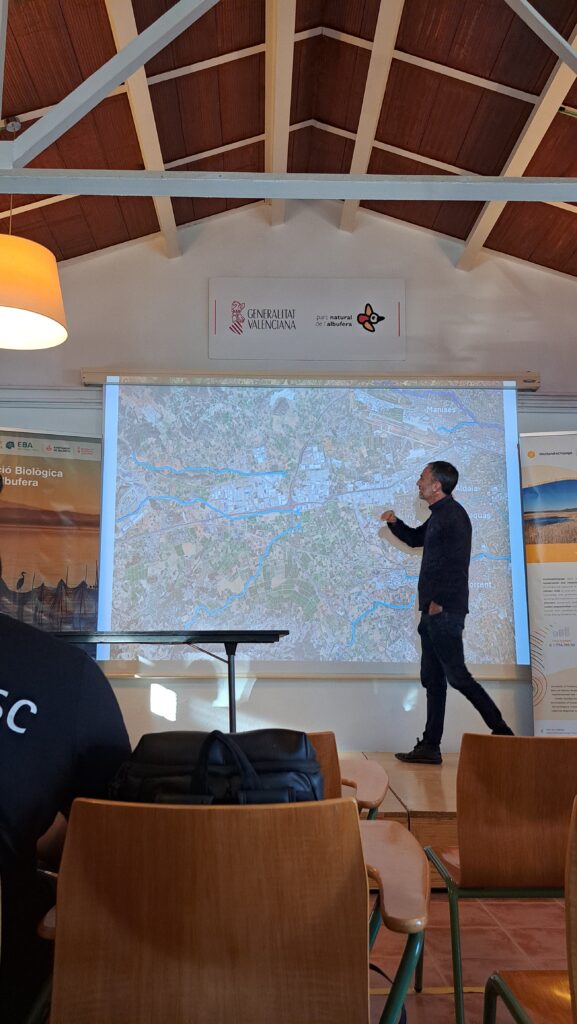
Carles Sanchis, President of the Management Council of Albufera Natural Park
Despite these difficulties, Sanchis underlined the potential of wetlands as a natural solution to mitigate climate change effects. Wetlands, he explained, are essential for sequestering carbon, regulating floods, reducing pollutants, conserving biodiversity, and protecting local communities from extreme climatic events. Sanchis emphasized that while the ecosystem adapts slowly to these changes, it remains a cornerstone of both environmental and economic resilience in the region.
Adding to this perspective, Antonio Camacho highlighted the indispensable ecosystem services provided by wetlands. He noted, “Ecosystems, especially aquatic ones, provide essential services for human well-being. The Albufera and its natural context played a crucial role in mitigating the floods caused by the DANA that hit Valencia and the Horta Sud area last month. Thanks to the wetland, the water flow was managed and distributed over a wide area, spreading into the lake and rice fields.”
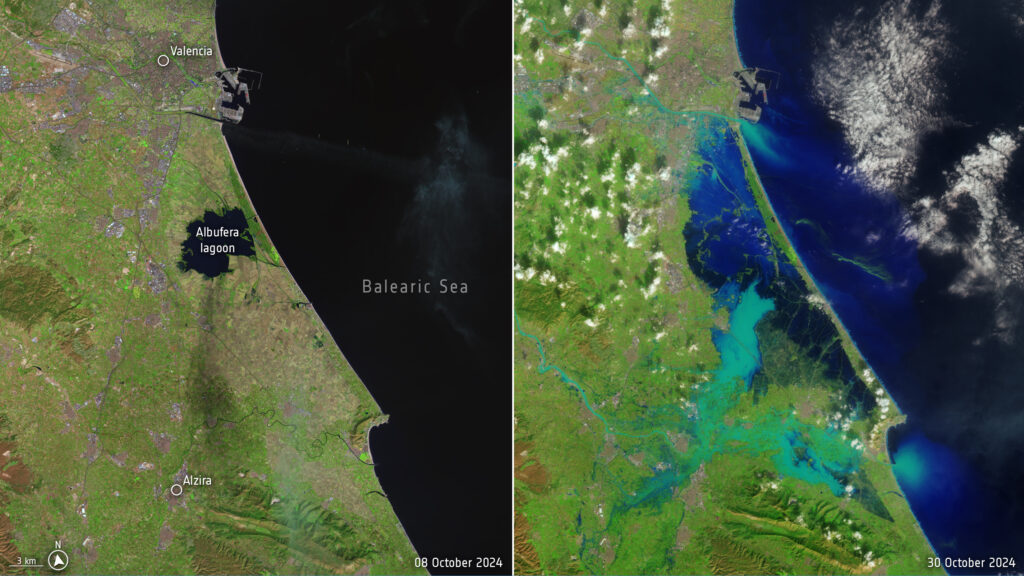
Satellite imagery provided by ESA.int reveals the stark contrast in Valencia’s landscape before and after the devastating DANA event. The images illustrate the critical role of the Albufera wetlands in mitigating the flood’s impact by containing excess water.
The testimonies of the experts align with the objectives of the Wetland4Change project, which aims to integrate wetland conservation into climate change adaptation strategies by promoting their role as natural solutions for flood prevention and ecological resilience.
Wetlands: Nature’s Solution for Effective Flood Regulation
Wetlands are increasingly recognized as vital in these efforts due to their ability to absorb excess water, regulate flood peaks, and reduce surface runoff. Unlike urbanized landscapes that can no longer absorb water due to extensive paving, wetlands act as natural sponges. They not only mitigate immediate flood risks but also offer long-term economic opportunities, such as ecotourism, while maintaining essential ecosystem services.
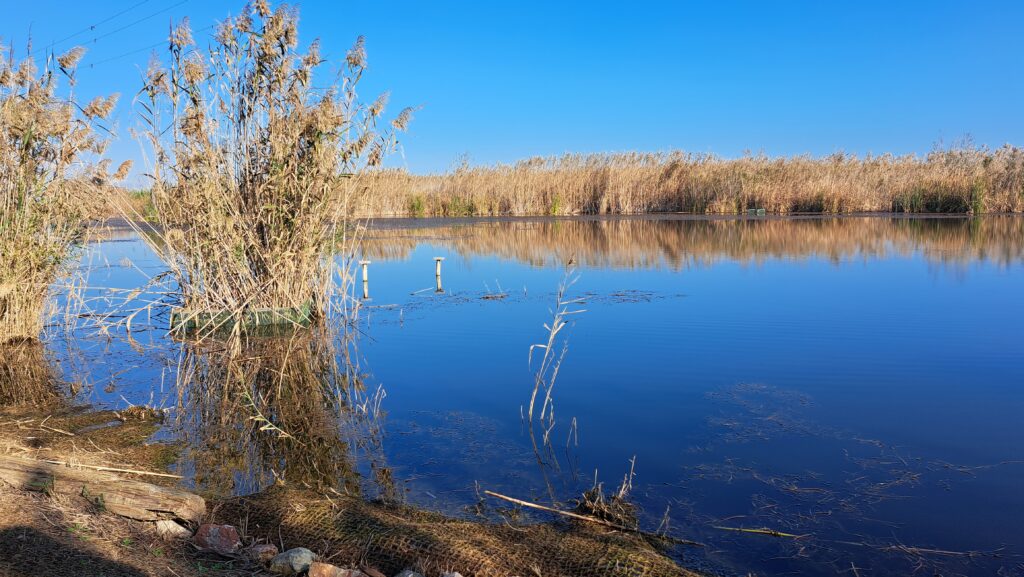
Albufera Natural Park – Valencia
The effective management and conservation of wetlands were central to the discussion. Wetlands, when properly managed, can shield communities from the escalating frequency and severity of storms and heavy rainfall. IUrban planning that prioritizes wetland conservation can safeguard infrastructure, minimize flood damage, and promote long-term environmental health. As natural buffers, they offer a sustainable, cost-effective alternative to traditional engineered flood management systems, which are often designed based on historical data and may lack resilience to modern climatic realities. Integrating wetlands into regional flood management strategies is critical to leveraging their full protective potential: furthermore, EU directives on flood management call for the incorporation of nature-based solutions, including wetlands, in national strategies to enhance flood resilience.
All these topics will be further discussed in the next Consortium Meeting, which will be hosted by MEDSEA Foundation in Sardinia next May and will focus on flood prevention measurements (WP2 led by Tour du Valat).

